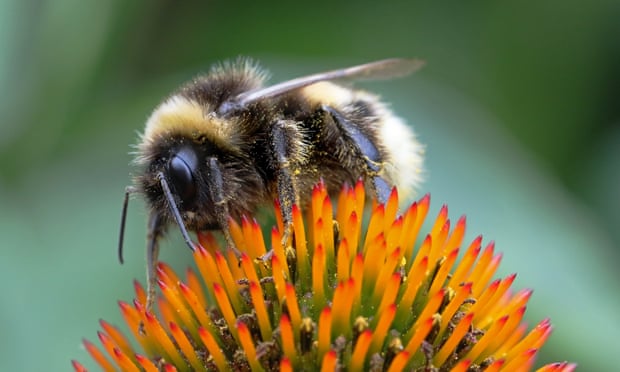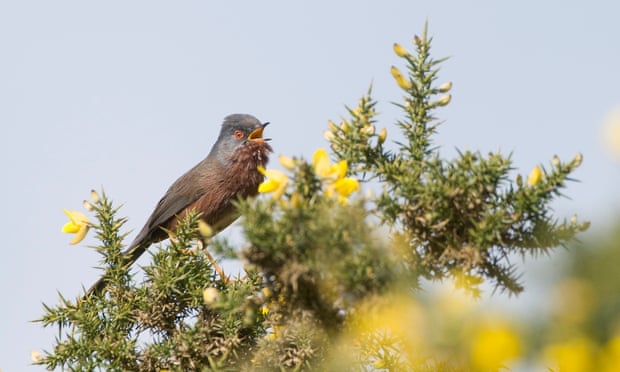Would u b interested in doing a collective homework? 移花接木2022-08-03 21:31:33
Task: Please find out in the article: how many distinctive...
- bird species, and names,
- insect, and worm species if there is any, and names,
- mammals, reptiles and amphibian if there is any, and names, are mentioned.
Here is the rule of how to play:
Turn in your answer by responding to this main post. You can do it in multiple steps, i.e. once you find your first birds,bugs,or whatever, reply immediately with your answers; then whenever you have time and find more, come back add them, BUT PLEASE ONLY MODIFY YOUR PREVIOUS REPLY, DONT GENERATE A NEW ONE.
Your answer should include the counts of the 1,2,3 big species, and names of each specific kind. Remember, general terms like bird, mammal, insect, animals, don't count!
Encore: it is very much appreciated if you want to include the images of your answers, size it to 300pix
I will follow this thread for a week and make a compilation out of everyones answer with words of the names and images of each animals. There is no personal award, participation is NO. 1
Thank you for your interest and input.
Please note each ID only replies this main post once and only once, for easy tracking, but you can still reply to other people's replies for social or other purposes.
Here is the article:
From badgers to bumblebees: how drought is affecting Britain’s wildlife
the link of the original article is here:https://www.theguardian.com/uk-news/2022/aug/03/from-badgers-to-bumblebees-how-drought-is-affecting-britains-wildlife
As garden birds struggle to find food, many species are also at risk of overheating and dehydration

While warm summer days may seem like good news for Britain’s wildlife – and indeed they can be for some warmth-loving insects, such as dragonflies – for many species of bird, mammal and insect the current drought conditions are far from ideal.
The British Trust for Ornithology (BTO) has warned that some of our best-loved garden birds are already struggling, as they try to raise their second broods of young. Blackbirds, robins and song thrushes need regular summer rainfall, as this creates the damp conditions that bring earthworms and other soil-dwelling invertebrates to the surface of garden lawns.
Droughts mean that the worms stay down in the damper earth, meaning that the birds cannot catch enough to feed themselves or their chicks. This can lead to desperate measures: during the very dry spring and summer of 2011, hungry blackbirds even resorted to cannibalism, feeding on their own offspring. The charity RSPB advises putting out mealworms to provide an alternative food source for the birds.
Ground-feeding mammals such as badgers and hedgehogs are also suffering during this unusually dry weather; not just because they cannot get enough food, but also from overheating and dehydration. And while hot and sunny days may be better than wet and rainy ones for adult butterflies, as they fly from plant to plant to lay their eggs, they are bad news for caterpillars, which need plenty of foliage on their host plants if they are to feed and grow. A recent study showed that in the years following prolonged summer droughts, when plants die off early because of the heat, butterfly populations tend to fall.
Other insects find it hard to cope in hot weather, too, but for different reasons. Prof Dave Goulson of the University of Sussex points out that because bumblebees have furry coats – an adaptation to flying and feeding in cool conditions – they are unable to forage in very high temperatures.
As temperatures hit record levels, young house martins, swallows and swifts risk fatally overheating. In London recently, young swifts that had been forced to leave their nests before they were fully fledged were seen falling out of the sky. House martins are also unable to find enough mud to build or repair their nests.
Prolonged dry weather increases the chances of wildfires, which spread very rapidly, especially on heathland and moorland. As early as April this year, 17 hectares (42 acres) of valuable wildlife habitat was destroyed at Canford Heath in Dorset, threatening the breeding success of rare species such as Dartford warblers, sand lizards and smooth snakes. And in July, a fire raged through the coastal scrub and reedbeds at Wild Ken Hill in Norfolk, home to the BBC’s Springwatch.

A Dartford warbler. Photograph: D Middleton/South Downs Centre/PA
Elsewhere in East Anglia, wetlands such as the Ouse Washes are beginning to dry out. If enough rain does not fall soon, the BTO fears that the young of some wader species, including the avocet, may not be able to find food. Other waders that nest on peatlands may also struggle if the peat dries out, as this would mean that the larvae of craneflies – food for the dunlin and golden plover – are unable to survive.
For all these species, a single bad summer, with resulting low breeding success, may not be a total disaster. But if summer droughts become the norm, because of the cumulative effects of the climate crisis, then breeding populations can decline very rapidly indeed.
This is not the first time a summer drought has caused problems for wildlife. Anyone who lived through the summer of 1976 will recall the “plague of ladybirds” that appeared from July onwards, forcing holidaymakers to flee from beaches covered with thousands of these black-and-red beetles. Ladybirds had initially benefited from the dry weather, which produced an early glut of their favourite food, aphids. But as the drought continued, and plants began to wither and die, the aphid population collapsed, and the ladybirds swarmed in search of alternative food sources.
In the decades since, warming temperatures have allowed several exotic species of bird to expand their range northwards. The BTO suggests that the current drought in southern Europe may be hastening that process, allowing black-winged stilts and bee-eaters to breed more frequently in the UK. While that may be good news for birders, this is also a clear sign that climate change is causing problems for these Mediterranean species, and a timely warning to us.